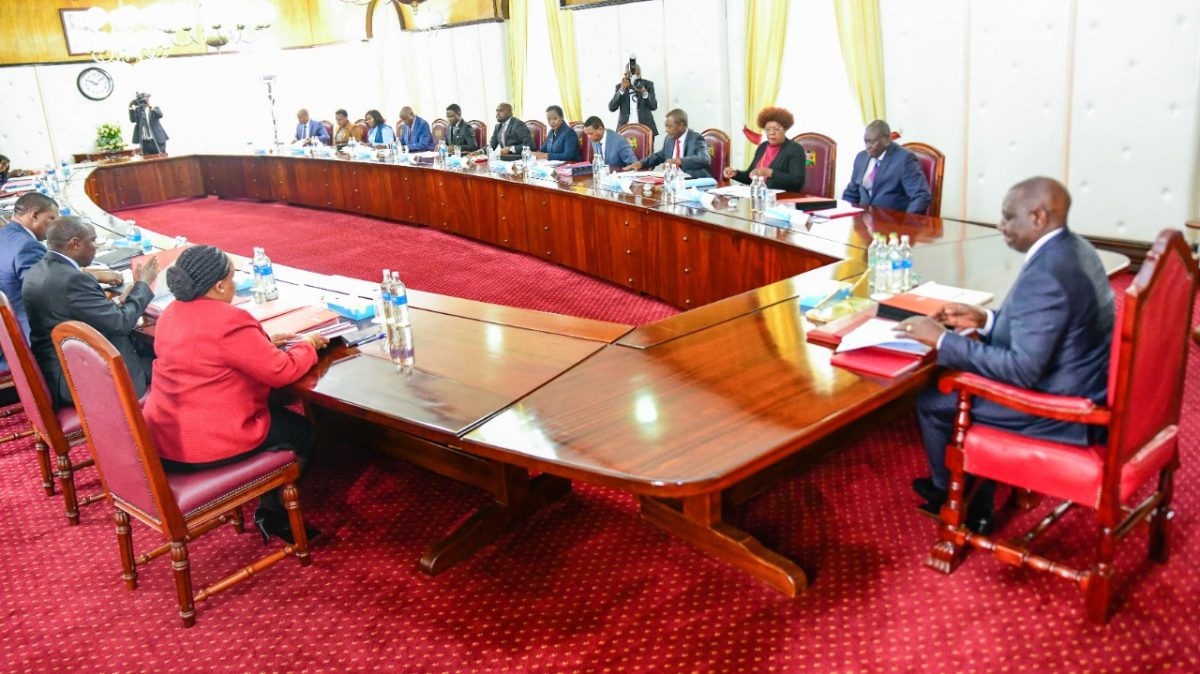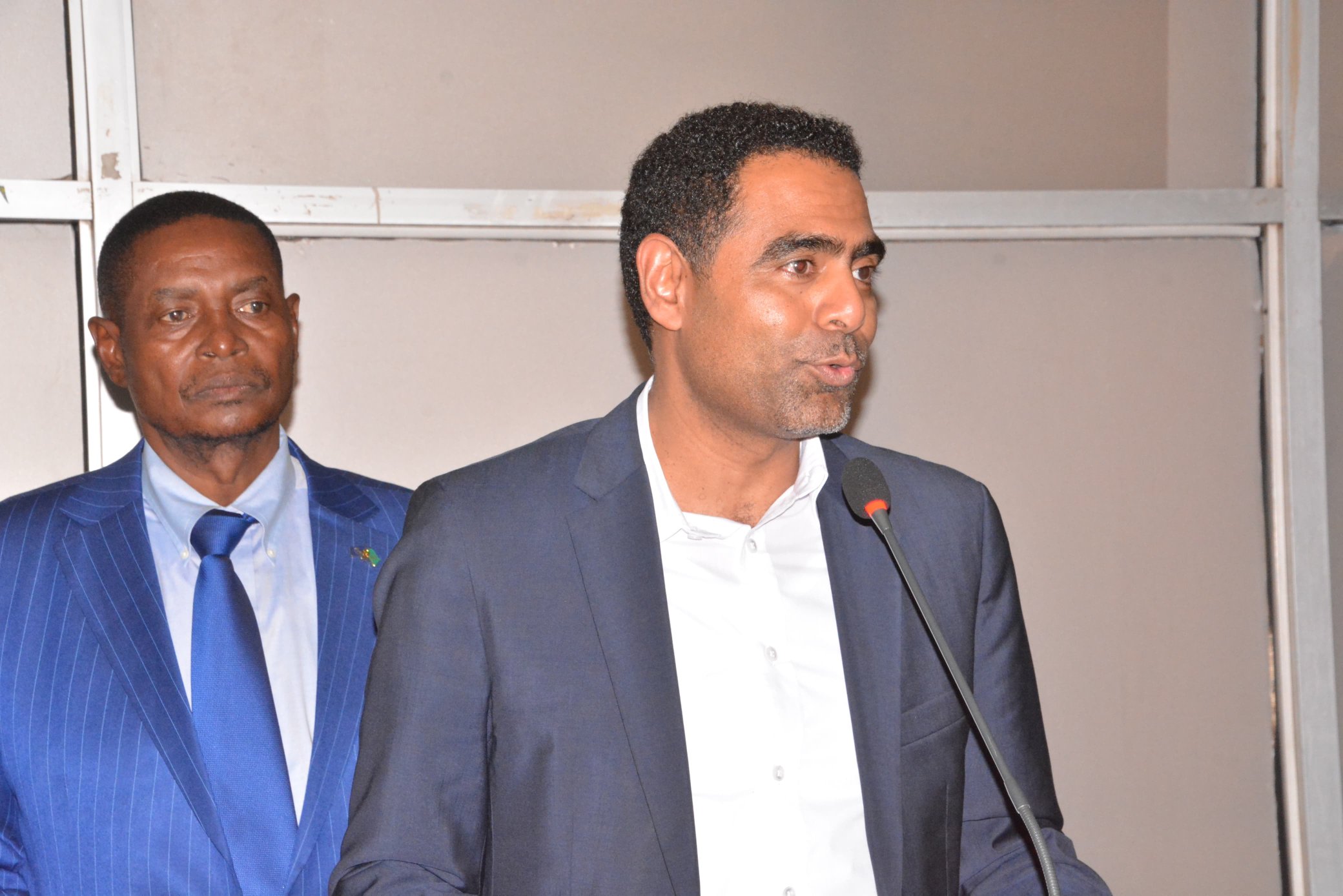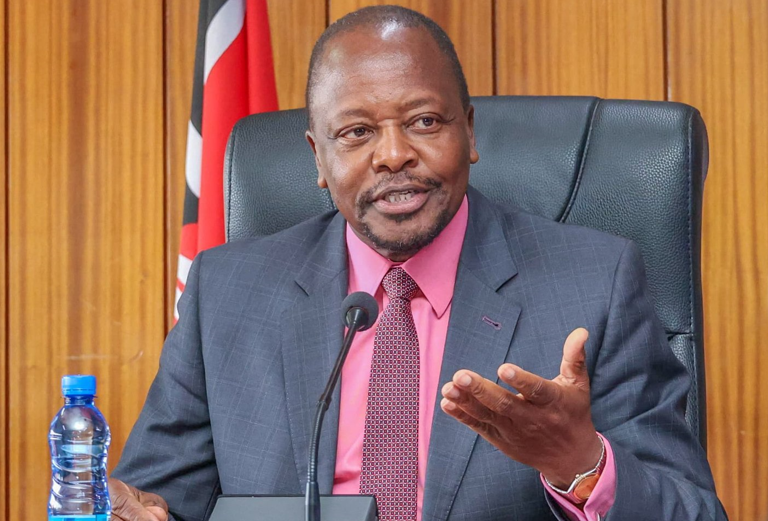Tough test for Ruto CSs as they outline vision

Six of the 24 Cabinet Secretaries face their biggest test since their appointment as they prepare to present to President William Ruto and his advisors the plan of how they intend to tackle major problems facing the country.
Although all the 24 have been challenged to prepare a detailed strategic plan on how they intend to tackle problems in their respective ministries in line with the Kenya Kwanza manifesto, all eyes will be on the six who handle the most sensitive dockets: Security, Health, Education, Energy, Treasury and Agriculture.
They will make the presentation at a high-level government meeting which opens today at the Fairmont Mount Kenya Safari Club. Among those expected to attend are the President’s advisors, industry experts and principal secretaries.
Sources at State House told to People Daily the main focus of the meeting will zero in on six Cabinet Secretaries heading key dockets that could determine President Ruto’s success or failure at the end of his first term and how the public will rate him at the end of his first year in office.
The four-day retreat will focus on reviewing the steps that the Kenya Kwanza administration has so far made in its first 100 days since taking over power. They are also expected to outline priority areas they intend to focus on this year.
CBC implementation
The retreat will also spell out programmes that the CSs are expected to implement to fulfill Kenya Kwanza’s campaign promises, among them reducing the cost of living, implementation of the Competency Based Curriculum (CBC), dealing with insecurity and health sector reforms.
State House spokesperson Hussein Mohammed said the retreat to be held between today and Sunday will crystallise the implementation programme of the government’s plan for 2023.
Among the CSs to be in the spotlight are Njuguna Ndung’u (National Treasury and Planning), Kithure Kindiki (Interior and Administration of National Government), Mithika Linturi (Agriculture and Livestock Development), Davis Chirchir (Energy and Petroleum), Ezekiel Machogu (Education) and Susan Nakhumicha (Health).
The six control the public-facing ministries and are also expected to control the largest chunk of the Sh3.63 trillion Budget that Parliament is expected to approve in June. The budgeting process is underway and education is routinely allocated the lion’s share, followed by health.
Hustler Fund
Simon Chelugui, the CS for Cooperatives and Micro, Small and Medium Size Enterprises (MSMEs), is also expected to come under sharp focus given that the Hustler Fund falls under his docket. By New Year’s Day, Kenyans had borrowed Sh10 billion from the Sh50 billion kitty, which is set to be expanded next month to make it possible for borrowers to get as much as Sh500,000 to start businesses.
Ndung’u, a former Central Bank of Kenya governor, will take centre stage, because he is expected to outline his strategy on how to reduce the high cost of living — which hit a 67-month high in November — and stabilise the economy so that more Kenyans can create and get jobs and grow the wealth the government intends to raise taxes from the current Sh1.8 trillion to Sh3 trillion by the end of the next financial year.
Among the issues the economist is expected to highlight include how his ministry intends to reduce public debt — now standing at Sh8.563 trillion — and wean the country from over-dependence on external borrowing. He will also be expected to show what he will do to reduce inflation to at least five per cent from 9.7 per cent.
Government plans to restructure parastatals such as Kenya Airways and Kenya Power and Lighting Company will also feature prominently after the President said about 10 such public firms will be sold through the stock market. Yesterday, the Capital Markets Authority extended the suspension of the sale of KQ shares till December as government shops for a strategic partner or buyer.
Finally, Ndung’u inherited Sh500 billion in pending bills, and he will be expected to show how these debts will be paid off progressively besides addressing the weakening shilling, which at the start of the year was trading at 130 against the dollar. This has led to a sharp rise in the cost of imports, including fuel and farm inputs needed to jumpstart agriculture.
“Prof Ndung’u is expected to outline measures that the government can take to stimulate self-reliance and reduce dependence on debt,” said a source involved in planning the talks.
In his new year message, Ruto said he had a solid plan for economic recovery, explaining that he had taken a bold step to do away with subsidies, which he claimed were initially rolled out for political benefit.
Universities woes
Chirchir, a close ally of the President, is expected to dwell on how he intends to progressively reduce the cost of fuel and electricity, the two commodities whose prices have a direct impact on industrial production and job creation.
He will also be expected to outline strategies to address alleged skewed revenue sharing formulas between mining companies and local communities and measures taken to establish a consumer protection oversight agency among other key programmes.
Machogu at Education will be expected to tell the President how his ministry plans to address issues arising from the move to domicile Junior Secondary School in primary rather than secondary schools. He is also expected to address the sticky issue of funding of university education, given that public universities have dug themselves into a Sh56 billion debt hole and university students are yet to receive their loans even as they report for a new semester.
The actualisation of the President’s plan to hire 116,000 teachers within two financial years is also expected to feature prominently given that teacher salaries account for a large chunk of the ministry’s budget.
Nakhumicha, the youngest CS, who is also in charge of Health, is expected to outline measures her ministry has in place to reduce the burden of health costs on Kenyans; implementation of the Universal Health Coverage; reforms at the National Health Insurance Fund (NHIF); shortage of drugs in public hospitals and the threat by doctors to go on strike in the event that ongoing negotiations with governors fail.
She is also walking the tightrope as she seeks to strike a balance on how to actualise President Ruto’s plan to establish Level 6 hospitals in six new regions, eradicate malnutrition within five years and establish a publicly financed primary healthcare programme.
Similarly, Linturi, faces the daunting task of outlining how the government will feed at least three million Kenyans facing starvation; tame high food prices; manage importation of genetically modified (GMO) maize and rice and actualise the President’s proposal to increase productivity of key value food chains.
Kindiki also has his work cut out for him as he is expected to give his roadmap on solutions to insecurity, especially in northern Kenya besides combating proliferation of illegal firearms; security threats in volatile areas such as West Pokot, Baringo, Laikipia, Samburu and Marsabit; and completion of reforms in the National Police Service.
He also has to outline his plan for dealing with the mushrooming organised gangs.
Sources said the outcome of the retreat will define the steps Ruto’s presidency undertakes this year in addition to determining how this will affect Kenyans over the next 12 months.










